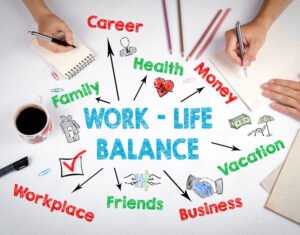
Work–Life Balance Quiz. Are You at Risk of Burnout?
Take our free Work–Life Balance Quiz (4–5 minutes) and discover if your life is thriving, healthy, or at risk. Quick, research-based results.
Our free tools give you a clear snapshot of your current well-being—covering anxiety, depression, ADHD, stress, sleep, and more.
Each test takes only a few minutes and provides plain-language feedback you can use to better understand your patterns and challenges. Results are private, not a diagnosis, and can help you decide whether professional support might be a good next step.
Stress is a normal reaction to life’s challenges, but when it becomes constant or overwhelming, it can take a toll on your body, mood, and daily functioning. Common signs include tension, irritability, fatigue, sleep problems, or difficulty focusing. A stress self-assessment helps you recognize how stress may be affecting you right now. While it isn’t a diagnostic tool, it can provide valuable insight into your current coping capacity and whether additional support might be helpful. By understanding your stress levels, you can take steps toward healthier coping strategies, better balance, and improved overall well-being.

Take our free Work–Life Balance Quiz (4–5 minutes) and discover if your life is thriving, healthy, or at risk. Quick, research-based results.
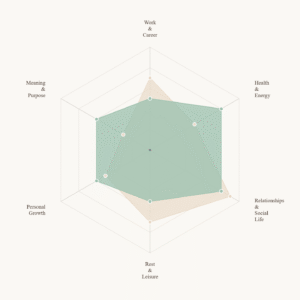
Find Your Balance Life can feel like a wheel that rolls smoothly when all parts are aligned — and bumps
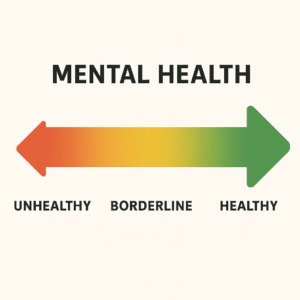
Your mental health isn’t just “good” or “bad” — it’s a spectrum. This quick, 12-question check takes less than 3 minutes and helps you see where you are right now. You’ll get a simple, private summary of your results and ideas for your next steps toward feeling your best.
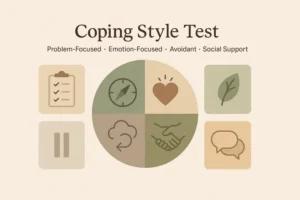
A quick, research-based self-check (3–5 minutes) that shows your main coping styles—problem-focused, emotion-focused, and avoidant—and how they affect your stress. Get simple tips to use what helps and change what doesn’t.
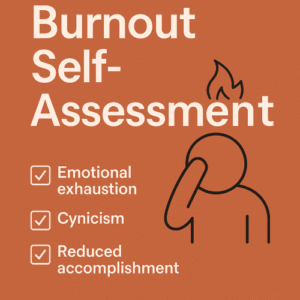
A quick, research-based questionnaire (about 5 minutes) that screens for signs of burnout in daily life and work. Results can help you understand your energy, stress, and recovery patterns, and whether taking steps for balance or seeking professional support may be useful.
The self-assessments and resources on this website are provided for educational purposes only. They are not diagnostic tools and should not be used as a substitute for professional medical or psychological advice, diagnosis, or treatment.
Results from these tools are intended to help you reflect on your well-being and may suggest when professional support could be helpful. They do not create a therapist–client relationship.
If you are experiencing significant distress, or if your symptoms interfere with daily life, please reach out to a qualified health professional.
In case of an emergency: call 911 immediately.
In Canada and the U.S., you can also dial 988 for the Suicide & Crisis Helpline.
For additional community services and hotlines, visit 211 Ontario.
Share your details, and we’ll reach out to you privately.
No pressure, no spam.